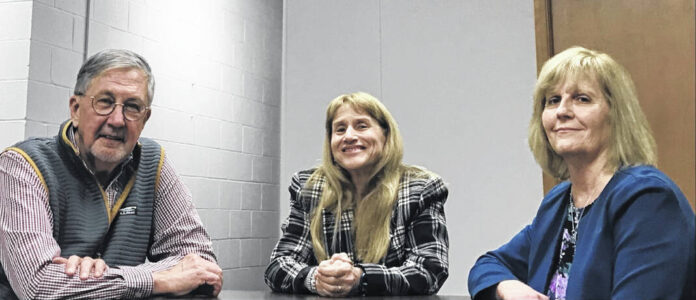LIMA — For the past year, case managers from the Allen County Guardianship Services Board have acted as legal guardians for some of Allen County’s most at-risk adults.
The court-appointed guardians make personal and medical decisions, ensuring that clients take their medications, make their medical appointments and stay off the streets, tasks which are at times difficult for adults with severe mental illness or developmental disabilities.
That may mean assisting a client with Medicaid and Social Security paperwork, arranging food delivery or moving someone into supportive housing. In other cases, a guardian may make decisions about end-of-life care, said Elizabeth Schaefer, a case manager for the guardianship board.
“Maybe they’re insulin-dependent, and they’re not taking their insulin,” said Cristy Vonderembse, executive director of the guardianship board, which started accepting referrals last March. “That can be a life-threatening situation.”
What is a legal guardian?
Courts can appoint personal or financial guardians for adults deemed incompetent, often due to severe mental illness or developmental disabilities.
In Allen County, those decisions are managed by Allen County Probate Court.
The process starts with a doctor’s evaluation and a court investigation to determine whether a person is incompetent or at risk of serious harm to themselves or others. The court may then appoint a guardian to make those personal, medical and financial decisions.
Guardianships are reviewed on an annual basis, and those subject to guardianships are entitled to their own legal representation if they wish to contest the guardianship.
Typically, the court-appointed guardian is a friend or family member. But when a person has no living family, or their family members can no longer act as a guardian, the court may appoint a case manager from the Allen County Guardianship Services Board instead.
‘You’re fearful for their life’
The Guardianship Services Board accepted 35 referrals in its first year, Vonderembse said.
The board, which consists of members from Mercy Health-St. Rita’s Medical Center, Lima Memorial Health System, the Mental Health Recovery Services Board of Allen, Auglaize and Hardin Counties, the Board of Developmental Disabilities, Allen County Probate Court and the United Way, only accepts referrals for personal guardianships, not financial guardianships.
“Basically, you’re fearful for their life,” said Mike Schoenhofer, board chair for the Allen County Guardianship Services Board. “You’re afraid that they’re going to either hurt themselves or intentionally or inadvertently hurt other people. That’s what everyone’s looking for.”
The guardian “intervenes to assist a person who is, in that moment, unable to make a good decision,” Schoenhofer said.
Already, Schaefer says she has seen clients become more independent. But the purpose, she said, is “to make meaningful change in what’s going on” in a client’s life.







